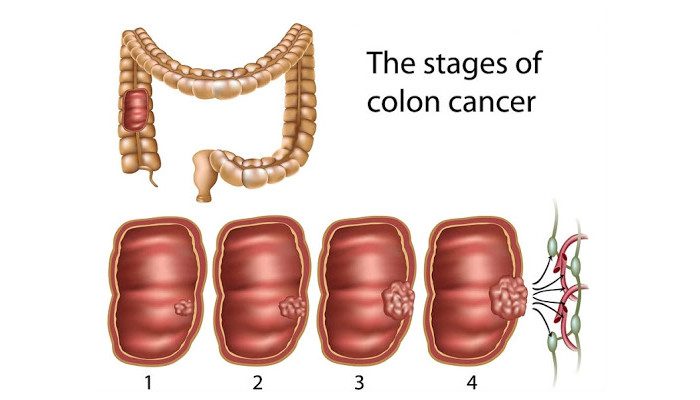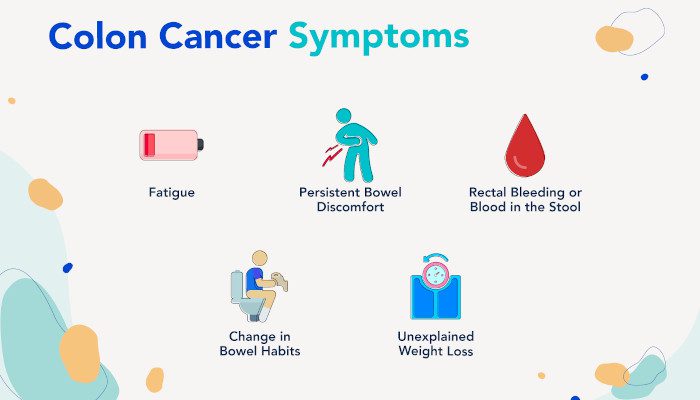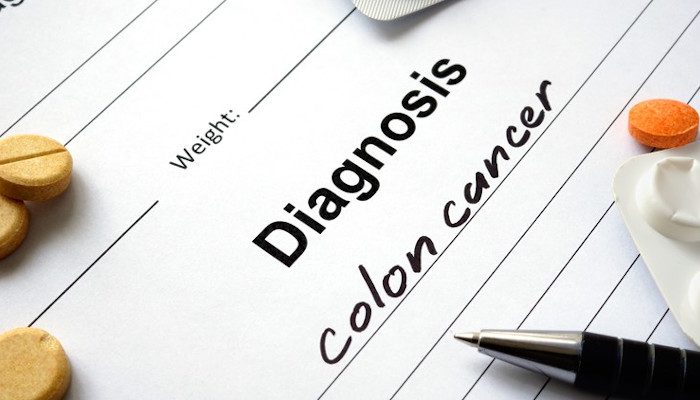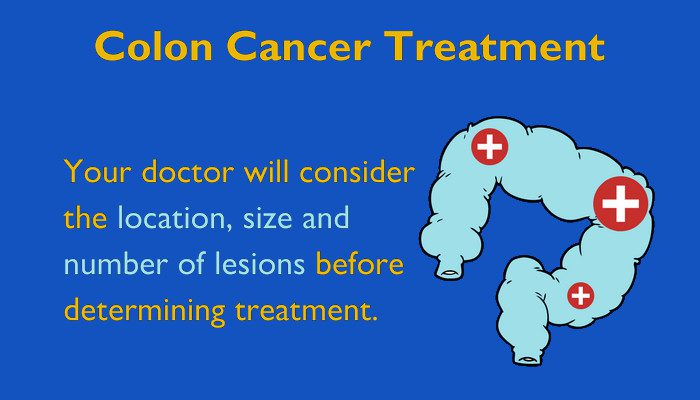What is Colon Cancer?
It is a disease wherein cancer cells develop in the tissues of the colon.
Types
- Adenocarcinomas: most common cancer type in colon and rectum, which form from mucus cells
- Carcinoid Tumors: develops from the hormone-making cells in the intestines
- Lymphomas: develops from the lymph nodes or in the colon
- Sarcomas: develops in the soft tissues (muscles) of the colon
- Gastrointestinal stromal tumors (GIST): develops rarely in the colon, starts as a benign tumor then eventually becomes cancerous
Stages
- Stage 0 (Carcinoma in Situ): cancer cells are confined in the innermost layer (mucosa) of the colon
- Stage I: Cancer cells in the mucosa have invaded the submucosa or to the muscle layer of the colon wall
- Stage II
- Stage IIA: cancer cells have invaded the muscle layer and the outermost layer (serosa) of the colon or rectum
- Stage IIB: cancer cells have invaded the muscle layer of the colon lining and have reached the tissues surrounding the organs of the abdomen- called the visceral peritoneum
- Stage IIC: Cancer cells have invaded the wall of the colon or rectum and have reached nearby structures
- Stage III
- Stage IIIA: cancer has reached the inner lining or the muscle layers of the intestine; with lymph node involvement: 1-3 or cancer nodules in the tissues surrounding the colon or rectum
- Stage IIIB: cancer has reached the bowel wall or to adjacent organs; with lymph node involvement: 1-3 or cancer nodules in the tissues surrounding the colon or rectum
- Stage IIIC: regardless of how extensive the tumor has grown, cancer cells have reached 4 or more lymph nodes
- Stage IV
- Stage IVA: Cancer has reached one distant organ of the body such as the ovary, liver, or lungs.
- Stage IVB: The tumor has reached more than one distant part of the body
- Stage IVC: the tumor has reached the peritoneum and may have affected other parts or organs of the body.
Symptoms
- Unexplained weight loss
- Changes in bowel habits
- Diarrhea or constipation
- Blood in the stool (bright red or dark red)
- A feeling of incomplete bowel emptying
- Stools have become slender
- Abdominal discomfort: frequent gas pains, feeling bloated, or cramps
- Body weakness
- Vomiting
Risk Factors
- Family history of colon or rectal cancer: first degree relative with colon or rectal cancer
- Previous history of colon cancer, rectal cancer, ovarian cancer, or colorectal polyps
- Inherited gene abnormalities: such as Familial adenomatous polyposis (FAP) or Hereditary polyposis colorectal cancer (HNPCC)
- Having an inflammatory disease in the colon: such as chronic ulcerative colitis and Crohn’s disease
- Heavy alcohol consumption: consuming 3 or more drinks each day
- Cigarette smoking
- Obesity
- Black race
- Older age: as people age, they are more prone to it
- Food consumption of low in fiber and high in fat
- Previous radiation therapy: previous radiation treatment for cancer on the abdomen, increases the risk for cancer in the colon
Book an appointment with Oncology experts at Oncoplus Cancer care.
Diagnosis
Here’s some it test performed or ordered by the physician to identify cancer in the colon:
- Obtaining history and physical assessment: history of diseases, treatments underwent, health habits if there are changes in bowel movements or any unusualities in the body; the doctor performs a physical assessment to check any signs of illness.
- Digital Rectal Exam (DRE): a physician examines the rectum by inserting of gloved and lubricated finger to check for any unusual growths.
- Fecal occult blood test (FOBT): a colon cancer test wherein stool specimen will be sent to the laboratory and check using a microscope for the presence of blood
- Barium Enema or Lower GI series: a procedure for its diagnosis that involves injecting a liquid (which contains barium that creates a coating to colon linings) into the rectum then an x-ray is taken. It generates a clear image structure of the colon.
- Sigmoidoscopy: uses a thin, flexible lighted tube with a lens- known as a sigmoidoscope and inserted through the rectum to visualize the rectum and the lower colon for any abnormal growths or areas. If abnormal growths are noted, it uses instruments to obtain tissue samples for biopsy.
- Colonoscopy: a test for its diagnosis that uses a thin, flexible lighted tube with a camera- known as a colonoscope and inserted through the rectum to examine the rectum and colon for any unusual growth, abnormal areas, or signs of cancer. If unusual growth is noted, it uses tools to obtain tissue samples for biopsy purposes.
- Biopsy: a colon cancer test wherein tissue samples are taken through sigmoidoscopy or colonoscopy and then sent to the laboratory for biopsy.
it tests that may be used for the staging of cancer:
- CT-scan
- Magnetic Resonance Imaging (MRI)
- PET scan (Positron emission tomography scan)
- Chest X-ray
- Complete Blood Count (CBC)
- Carcinoembryonic antigen (CEA) assay
Book an appointment with the best kidney cancer doctors in Delhi for Kidney Cancer Treatment
Treatment Options
- It Surgery: surgical removal of the colon or a part of it that has cancer
- Polypectomy: performed during colonoscopy, if a polyp (small growth on the colon lining) if found.
- Local Excision: one of the colon cancer treatment options that are performed by removal of the tumor and some tissues of the rectal wall. It is done through an anal or rectal approach.
- Hemicolectomy: a colon cancer surgery that involves removal of the cancerous part of the colon including some healthy segments of the colon on both ends. The remaining segments of the colon will be anastomosed.
- Total colectomy: involves the removal of the entire colon. This procedure is also done for familial adenomatous polyposis or inflammatory bowel disease.
- Chemotherapy: it treatment that kills cancer by inhibiting cell growth and reproduction.
- Systemic chemotherapy
- Regional chemotherapy
- Radiation Therapy: it treatment that utilizes high-energy x-rays to kill cancer cells
- External radiation therapy
- Internal radiation therapy
Book an appointment with the Best Cancer Specialist at Oncoplus Hospital.



